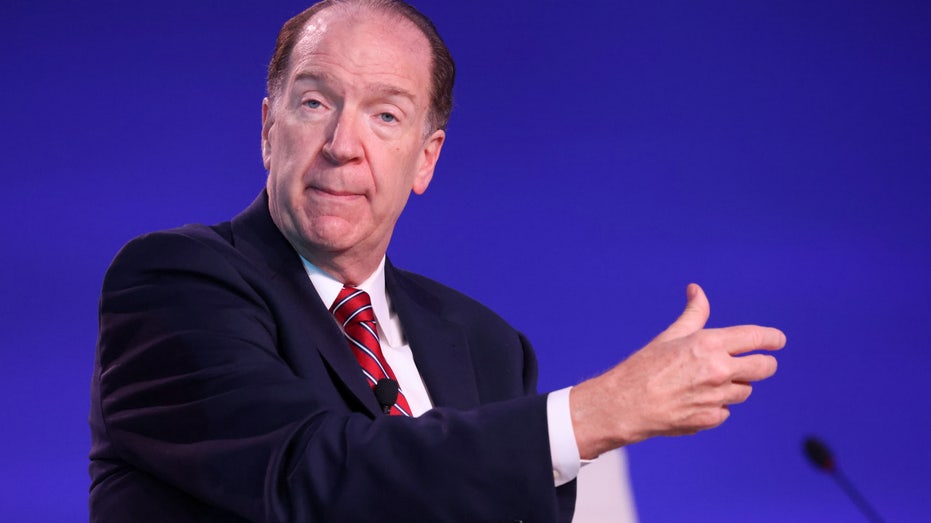World Bank slashes global economic outlook, warning of 1970s-style stagflation risk
Global economy is 'in danger' amid high inflation, growth slowdown: World Bank
No doubt risk of recession increased for 2023: Former Chase chief economist
Former Chase chief economist Anthony Chan argues the question right now is whether an upcoming recession will be major or minor given the inconclusiveness of the data.
The global economy is in an increasingly precarious position, with the odds of a recession growing as large and small nations alike confront the dangerous combination of high inflation and slow growth, the World Bank warned Tuesday.
Fallout from the Russian war in Ukraine, ongoing supply chain disruptions, pandemic-related lockdowns in China and the soaring price of food and energy is dealing a major setback to economic growth across the world, the Washington-based institution said in its latest edition of the Global Economic Prospects report.
HIGH INFLATION COULD BE 'PAINSTAKINGLY SLOW' TO COME DOWN
"The world economy is again in danger," World Bank President David Malpass wrote in the report. "It is facing high inflation and slow growth at the same time. Even if a global recession is averted, the pain of stagflation could persist for several years – unless major supply increases are set in motion."
The World Bank cut its estimate for global growth this year to 2.9% – a sharp drop from its January projection of 4.1% and its April forecast of 3.25% – in its grim new outlook, citing the surge in energy and food prices, supply disruptions from the Russian invasion of Ukraine and a push by central banks globally to aggressively tighten monetary policy.

Greg Fisher scans inventory in Wheel Pros' supply warehouse on Wednesday, Oct. 27, 2021, in Greenwood Village, Colo. (Kevin J. Beaty/Colorado Public Radio via AP / AP Newsroom)
Growth is expected to remain sluggish in 2023, below the average recorded in the previous decade. Few countries are immune to the inflation shock: In the U.S., growth is forecast to slow to 2.5% this year. China's growth is also expected to slow to 4.3%, down from 8.1% in 2021.
The U.S. economy recorded its strongest growth in nearly four decades in 2021, fueled by trillions in government stimulus and easy monetary policies that kept borrowing costs near zero. While the pandemic relief efforts helped keep households afloat during the pandemic and helped to bring unemployment from a high of 14.7% down to 3.6% in just two years, it also fueled rapid consumer demand that has exacerbated already sky-high inflation.
"For many countries, recession will be hard to avoid," Malpass said.
With inflation accelerating and growth slowing, World Bank officials expressed concern about the prospects of a return to 1970s-style stagflation.

World Bank President David Malpass attends the UN Climate Change Conference (COP26) in Glasgow, Scotland, Britain, November 3, 2021. (REUTERS/Yves Herman / Reuters)
Stagflation is the combination of economic stagnation and high inflation, characterized by soaring consumer prices as well as high unemployment. The phenomenon ravaged the U.S. economy in the 1970s and early 1980s, as spiking oil prices, rising unemployment and easy monetary policy pushed the consumer price index as high as 14.8% in 1980, forcing Fed policymakers to raise interest rates to nearly 20% that year.
GET FOX BUSINESS ON THE GO BY CLICKING HERE
As a result, the World Bank said that central banks may have no choice but to raise interest rates more rapidly. Hiking rates tends to create higher rates on consumer and business loans, which slows the economy by forcing employers to cut back on spending.
With emerging and developing nations' debt at the highest level in decades, "the associated rise in global borrowing costs and exchange-rate depreciations may trigger financial crises, as it did in the early 1980s," the World Bank said.





















